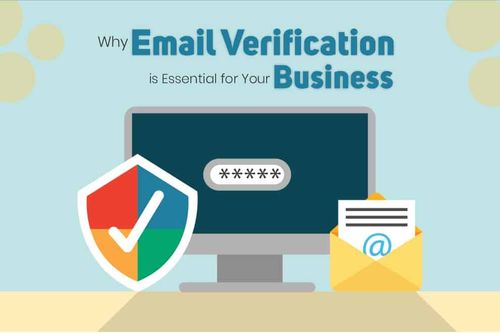Email verification: Is it really necessary for your business, or is it just an extra step in the user onboarding process? In this comprehensive guide, I, an industry expert, will delve deep into the world of email verification. We will explore the reasons why email verification is not just a choice but a necessity for businesses. From improving data quality to enhancing user experience, we will uncover the myriad benefits of this crucial practice.
The Role of Email Verification in the Digital Age
In today's digital landscape, where data drives decisions and user interactions shape business success, the accuracy of information is paramount. Email verification is a process that ensures the email addresses you collect are valid and active. It involves sending a verification email to the provided address and confirming the user's intent to receive communication.
The Necessity of Email Verification
Data Quality: Email verification enhances the quality of your customer data by eliminating invalid or fake email addresses. Clean data leads to more accurate insights and better decision-making.
User Experience: It prevents communication issues caused by typos or incorrect email addresses. A seamless user experience is vital for retaining and engaging customers.
Compliance: In some jurisdictions, email consent is a legal requirement. Verifying email addresses helps ensure compliance with regulations like GDPR.
Cost Savings: Sending emails to invalid addresses wastes resources and money. Email verification reduces bounce rates and lowers email marketing costs.
Reputation Management: High bounce rates can harm your sender reputation. A damaged reputation can lead to emails landing in spam folders, reducing their visibility.
Real-World Consequences of Neglecting Email Verification
To truly understand the necessity of email verification, let's explore some real-world examples of businesses that faced challenges due to not implementing this practice.
Forbes Case Study
Forbes reported on a case where a company failed to verify email addresses. The consequences were dire: they experienced a high bounce rate, which damaged their email sender reputation. Their email campaigns ended up in spam folders, resulting in a significant drop in open rates and engagement. This led to a substantial loss in potential revenue and a tarnished brand image.
The Impact on User Experience
Email verification also plays a crucial role in enhancing user experience. When users sign up for your service or subscribe to your newsletter, they expect a smooth and error-free process. Failing to validate email addresses can lead to the following issues:
Frustration: Users may become frustrated when they don't receive the expected confirmation emails or face login issues due to invalid email addresses.
Abandonment: High friction during registration or subscription processes can lead to user abandonment, resulting in lost opportunities.
Trust: Users may lose trust in your brand if they repeatedly encounter issues with communication, leading to decreased loyalty.
Security: Invalid email addresses can be exploited for malicious purposes, potentially compromising your system's security.
The Bottom Line: Cost Savings and Revenue Generation
Beyond data quality and user experience, email verification has a direct impact on your business's bottom line.
Cost Savings: By reducing bounce rates and ensuring that your email campaigns reach the intended audience, you save money on email marketing and avoid wasting resources on invalid addresses.
Revenue Generation: Valid email addresses facilitate effective communication with your audience, leading to higher engagement, conversions, and revenue generation.
Customer Lifetime Value: A positive user experience, driven by email verification, increases customer satisfaction and boosts customer lifetime value.
Frequently Asked Questions (FAQs)
Let's address some common questions related to email verification:
Q1: Can I manually verify email addresses?
A1: Manually verifying email addresses is time-consuming and prone to errors. Automated email verification services are more efficient and accurate.
Q2: What are the legal implications of not verifying email addresses?
A2: Failing to verify email addresses can lead to non-compliance with data protection regulations, potentially resulting in legal consequences and fines.
Q3: How often should I update my email verification process?
A3: Regularly update your email verification process to adapt to changing regulations and technologies and maintain data accuracy.
Q4: Are there email verification tools available for small businesses?
A4: Yes, there are email verification tools and services suitable for businesses of all sizes, including cost-effective options for small businesses.
Q5: Can email verification be integrated into my existing systems?
A5: Yes, email verification services can often be seamlessly integrated into your CRM, email marketing platforms, and other systems.
Conclusion
Email verification is not an optional step but a fundamental necessity for businesses in the digital age. It impacts data quality, user experience, cost savings, and revenue generation. Neglecting email verification can lead to serious consequences, including damage to your brand's reputation and financial losses.
Investing in email verification is an investment in the future success of your business. By ensuring that your email lists are clean and that communication with your customers is error-free, you create a positive user experience, build trust, and unlock opportunities for growth. Email verification is not just necessary; it's a strategic imperative for modern businesses.



